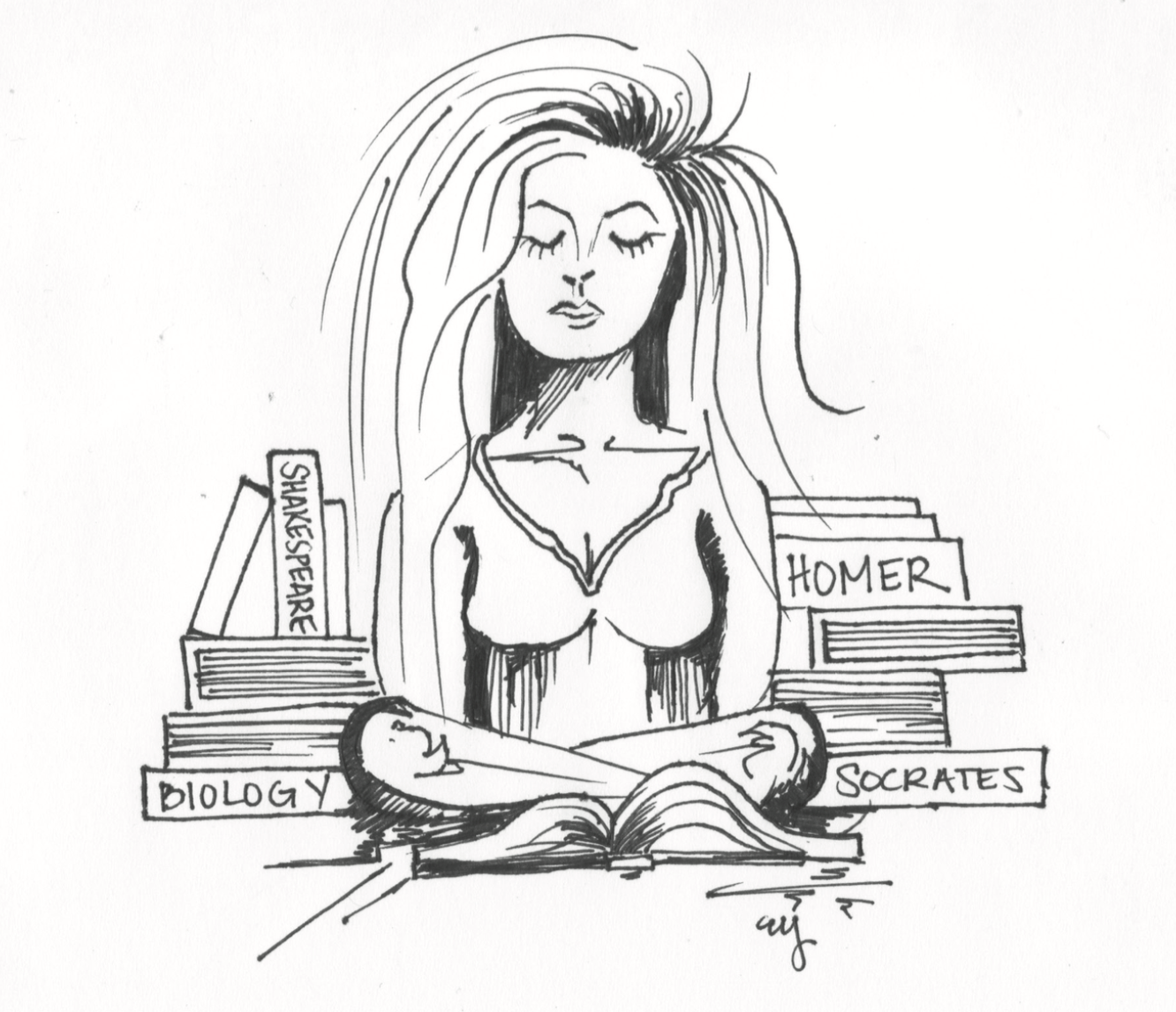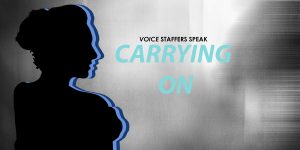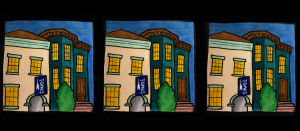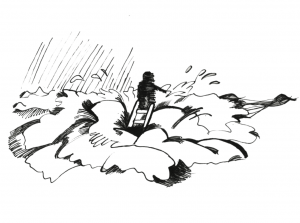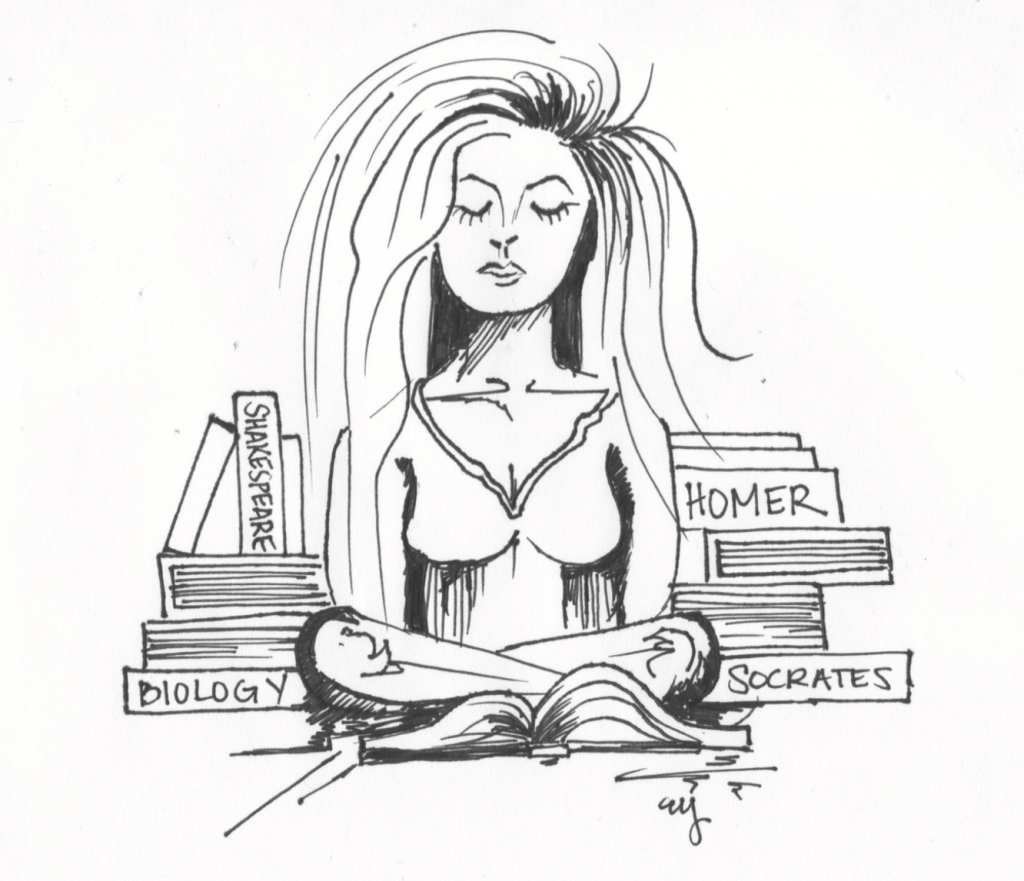

Ellie Yaeger
When a high school teacher, the marvelous Ms. Hadley Moore, introduced the word “perennialism” into my vocabulary, I immediately thought of perennials, the plants. You know, those plants that come up year after year, no matter how harsh and unforgiving the winter may have been? However, I soon discovered that my botany-centric definition was only part of a bigger picture.
Perennialism, as Ms. Moore explained, is an educational philosophy that emphasizes principles and reasoning over cold, hard facts. Advocates of this line of thought seek to promote personal development, as opposed to rote learning and the regurgitation of events, names, and years. It originated during the Renaissance, and is the foundation of today’s liberal arts model for education.
I came to realize that I had been a perennialist all my life—I just didn’t know there was a name for it until high school. I had become quite comfortable with the previous nomenclature: nerd, bookworm, dork, etc. These labels had been hurled at me ever since I brought my copy of To Kill A Mockingbird to recess in the first grade. I felt pretty great that I could finally justify my bookishness with a long, fancy word like “perennialism.”
Perennialism has been (and continues to be) a part of my everyday life because it’s all about extending education beyond the classroom. It’s probably a part of yours, too. You don’t have to look too hard to find ways that you are learning: on sports teams, in extracurricular activities, or even amongst your friends on a Saturday afternoon. Perennialism teaches that what really matters is that we try to find ways to learn for the sake of learning in our “non-academic” lives. We all have moments when we would rather do anything but homework, and that’s quite alright. Not all learning is accomplished in the classroom. In these moments, we should throw ourselves into our passions.
Perennialists promulgate ideas that are pertinent to everyone, everywhere—in other words, universal truths. I find these truths most often in the classroom, because that is my primary passion. I also find these truths in the art studio or in Georgetown’s community garden. I find these truths when I lay out on my blanket on the front lawn and talk with my friends. You might be getting the impression, then, that this is an easy philosophy to apply, but, like anything, perennialism has its flaws.
The philosophy does require a significant amount of discipline from its practitioners. Reading the classics of the Western literary canon, wrestling with complex philosophy, writing about aspects of theology that just simply cannot be accurately put down into words, are all learning experiences perennialism encourages—and they can be quite taxing. But if you can harness your discipline and carry on, the benefits will reveal themselves in due time.
Now sticking it out and learning for the sake of learning is all well and good, but we can oftentimes encounter knowledge that can’t be easily incorporated into our daily lives. You may not see the surface-level benefits of reading Chaucer if you plan on being a physical therapist, and you may not see the point of learning the art of scientific reasoning if you want to be a ceramicist. Perennialists maintain that the mere act of learning and acquiring knowledge is what lets us know that we are growing and getting better. Getting lost in Milton’s Paradise Lost, finally determining that the series from chapter 17 of your calculus textbook actually tends toward infinity, defending why you think socialism would be plausible on a large scale, and so on, are all aspects that make up the kind of people we become. We are lifelong students. Studying calculus makes English teachers better at teaching English because it inspires them to incorporate a different kind of analysis than is typically used in literature. Studying Platonic philosophy makes chemists better chemists because it inspires them to hone their reasoning more critically. Knowledge doesn’t have to directly correlate to what your intended career might be. In fact, the linkages between knowledge and application are much more dynamic.
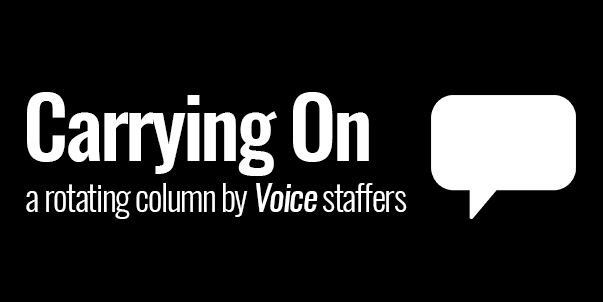

As someone who wants to teach someday, I can’t imagine a better way to enrich the soul than to wrestle with the philosophical musings of Descartes, or to study the same works that inspired Fyodor Dostoevsky, Jackson Pollock, and Stephen Hawking, or to understand the mistakes that have led to terrible historical atrocities. So maybe my first hunch wasn’t that off—maybe being a perennialist does have something to do with those hardy little plants that keep popping up each spring, year after year. Those plants have established roots which firmly hold them in place. They have experienced rough times, and yet the continue to bloom and grow, despite the difficulties. They stick to established truths while still taking in whatever their environment may bring. Being a perennialist is as much a life philosophy as it is an educational philosophy for me. So watch out, students: spring is coming.
Megan Howell is a sophomore in the College and the cover editor for the Voice. Carrying On is a rotating column by Voice staffers.


